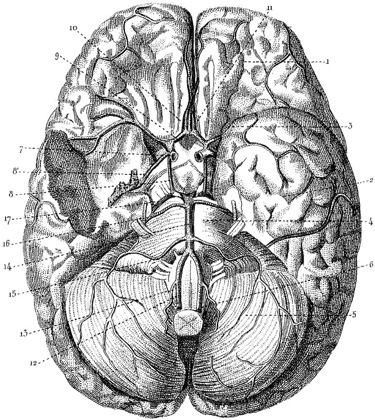|
 Custom Search
Disorders of the Blood Vessels of the BrainCerebrovascular disease refers to disorders of the blood vessels that supply blood flow to the brain. While many of these disorders can cause what is generally referred to as "stroke", they vary quite a bit in their presentation and specific disease characteristics. For this reason, "stroke" can be a confusing term and is often misused. The term "stroke" originally meant a neurological condition which occurs suddenly, like a stroke of lightning. However, this can refer to many different underlying causes. The most common cause of "stroke" is what is called cerebral infarction which is damage to a part of the brain because of a blockage of the normal blood flow. The brain needs blood and therefore it will fail to function normally when an infarction occurs. However, other forms of "stroke" include hemorrhage, or bleeding, into or around the brain. These forms of "stroke" can be quite different in their symptoms and underlying pathology that caused the bleeding.  Specific Types of Neurovascular DiseaseBelow is a list of specific cerebrovascular disease conditions, each of which link to further information about them. There is also more information to help clarify what is meant by stroke.
If you cannot find a particular type of cerebrovascular disease, use our Site Map and Search function to search this site. If you still cannot find it, it is possible we do not yet have an article for that specific condition. If that is the case, please Contact Us and let us know. We work hard to post new material often so that we can meet the needs of all of our readers. Return to the Nervous System Diseases home page. Important Note: This site is not intended to offer medical advice. Every patient is different, and only your personal physician can help to counsel you about what is best for your situation. What we offer is general reference information about various disorders and treatments for your education. |
Inquire here about advertising on Nervous System Diseases.



